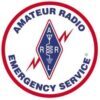KNW-151
Third Party Communication
Written by Earl Pack, AE5PA and
compiled from FCC rules and ARRL articles.
Revised 11/2016
What is a “third-party communication”?
Section 97.3 defines the term “third-party communication” as a message from the control operator (first party) of an amateur station to another amateur station control operator (second party) on behalf of another person (third party).
Under Section 97.115, your station is authorized to transmit messages for a third party to any station within the jurisdiction of the United States on behalf of third parties. Section 97.115(b), moreover, it authorizes the third party to participate in stating the message where the Section 97.7 station control operator is present at the control point and is continuously monitoring and supervising the third party’s participation and the third party is not otherwise ineligible to participate in stating his or her third party message. More details on this later.
A third party cannot operate your amateur station. Only the control operator can “operate” the station. Section 97.3 defines the term “control operator” as an amateur operator designated by the licensee of the station as responsible for the transmissions from that station to ensure compliance with the Rules.
Third Party Speak The Message
You may allow the third party to participate in stating the message by speaking, typing, telegraph keying the words of the message, pointing the video camera or by whatever means the message is generated. Section 97.115, however, prohibits you from allowing the third party to so participate where:
- The third party is a prior amateur service licensee whose license:
- was revoked,
- was suspended for less than the balance of the license term and the suspension is still in effect,
- was suspended for the balance of the license term and re-licensing has not taken place,
- was surrendered for cancellation following notice of revocation, suspension or monetary forfeiture proceedings, or where
- The third party is not the subject of a cease and desist order that relates to amateur service operation and which is still in effect.
Local Government Employee Operation
You may permit a local government employee to operate an amateur station for which you are the licensee provided the person holds an amateur operator license. Section 97.7 authorizes only persons who have been granted an amateur operator/primary station license, or who are eligible for alien control operator privileges or who hold an amateur service licenses issued to them by the Government of Canada and who are Canadian citizens to be the control operator of any station.
However, Section 97.113 prohibits “communications in which the station licensee or control operator has a pecuniary interest, including communications on behalf of an employer.”
“Section 97.113 does not prohibit amateur radio operators who are emergency personnel engaged in disaster relief from using the amateur service bands while on paid duty status. These individuals are not receiving compensation for transmitting amateur service communications; rather, they are receiving compensation for services related to their disaster relief duties and in their capacities as emergency personnel.” Other rules apply if the communications are part of training exercises or drills.
In a Report and Order (R&O) released July 14, 2010, the FCC amended Part 97.113 to allow participation in non-governmental disaster drills — such as those sponsored by ARES® or private hospitals; the FCC will now allow amateurs employed by an agency participating in such a drill to participate up to one hour per week. In addition, they may also participate in up to two exercises in any calendar year, each for a time period not to exceed 72 hours.
A good rule of thumb when evaluating a particular request for communications support is, “Who benefits?” If public safety is the principal beneficiary, then Section 97.1 is being fulfilled. If the entity itself and not the general public is the principal beneficiary, then they should be encouraged to use radio services other than Amateur Radio.
Thus, in public service events, in non-emergency events and in non-training events, we often provide a shadow service for government officials who may have an amateur radio license. This shadow assignment also allows that official to focus on their primary assignment.
International Third Party Traffic
You may be asked by a station outside the US to pass a third-party message to a friend or relative
in the States. This is permitted if the US has signed an official third-party traffic agreement with that particular country or if the third party is a licensed amateur. The traffic must be noncommercial and of a personal, unimportant nature. During an emergency, the US State Department will often work out a special temporary agreement with the country involved but in normal times, never handle traffic without first making sure it is legally permitted.
That concludes tonight’s training. Are there any questions, comments or suggested additions to this material?
Thanks, this is (callsign) clear to net control.
